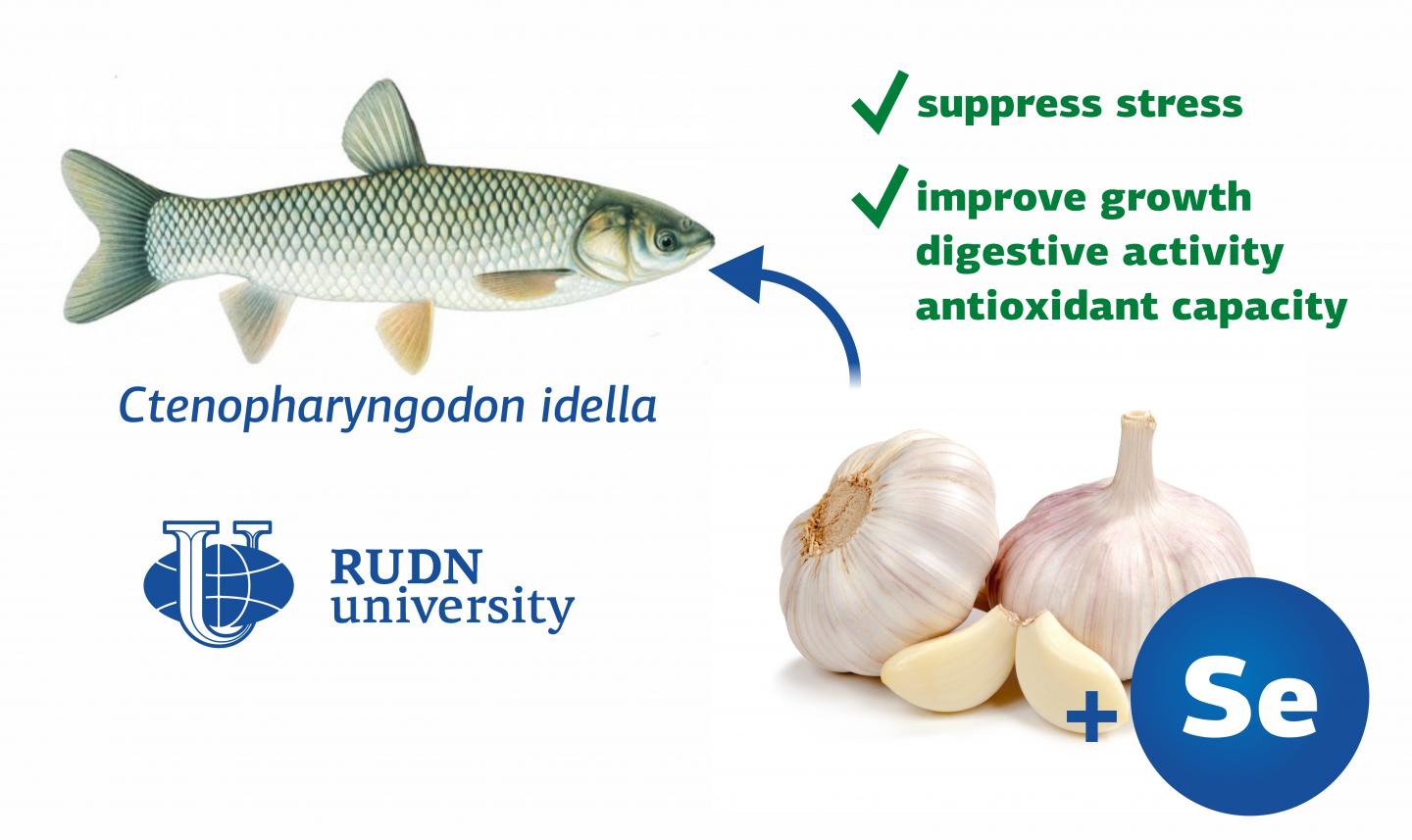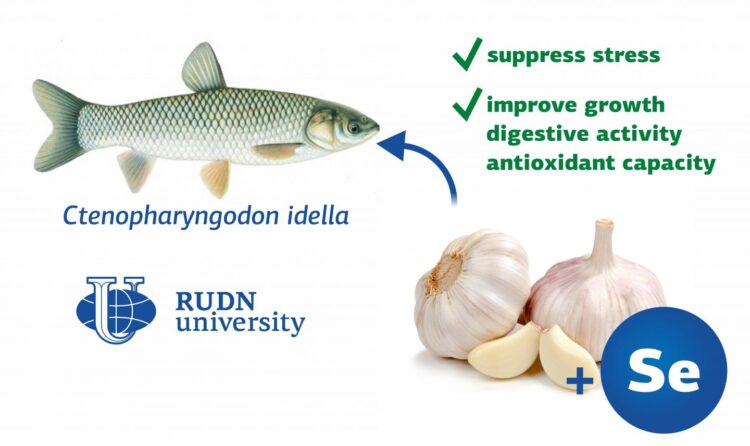
Credit: RUDN University
A biologist from RUDN University confirmed that selenium nanoparticles and garlic extract can effectively reduce the negative impact of stress on the health of grass carp in the breeding industry. The results of his study were published in the Journal of the World Aquaculture Society.
Grass carp or Ctenopharyngodon Idella is a valuable commercial fish type. In order to increase productivity, fish farms tend to breed more and more fish in small reservoirs. This extreme population density causes stress in carps that negatively affects their health, namely, reduces immunity, slows down growth, suppresses digestion, and interferes with intestinal functions. To mitigate these effects and support the immune system of the fish, farmers often use dietary supplements. A biologist from RUDN University confirmed the efficiency of selenium and garlic extract that increase stress resistance in carps.
“Being a component of the enzyme glutathione peroxidase, selenium protects cell membranes from oxidative damage. It is also known to support immunity and gut health in fish. In its turn, garlic increases the growth rate, improves immunity and antioxidant activity, and supports the activity of digestive enzymes in fish. However, until recently, no data on the effect of selenium and garlic extract on the productivity of actively bred young grass carps has been available. Therefore, we decided to research the ability of these substances to mitigate stress,” said Morteza Yousefi, PhD, an assistant professor at the Department of Veterinary Medicine, RUDN University.
The team divided 1,008 healthy juvenile grass carps with an average weight of two grams into six groups and put them into 18 48-liter pools with low (24 fish), medium (48 fish), and high (96 fish) population density. Half of the fish received 1 mg of Se nanoparticles and 1 g of garlic per 1 kg of fodder (diet 1), while the other half got twice as much of both supplements (diet 2). After 60 days, the team compared the growth rate, blood composition, and digestive enzyme activity in both groups and broke the data down by population density levels.
The fish from the pools with medium and low population density that received more selenium and garlic grew the most: by 286% and 276%, respectively. The experiment showed that both low and high population density caused a stress reaction in fish that led to the reduction of antioxidant enzyme activity. However, regardless of the density, the levels of cortisol, also known as the hormone of stress, were lower in the group that received diet 2: 30 ng/ml against 40 ng/ml in the group that received diet 1. According to the researchers, adding selenium and garlic to fodder could partially compensate for the stress of breeding in highly populated pools.
“We confirmed that both dietary supplements and population density have a prominent effect on growth rate and food utilization in grass carp. Higher concentrations of selenium and garlic extract in the diet suppress the stress reaction, reduce oxidizing damage and lipid damage, and improve the growth rate, digestive enzyme activity, antioxidant properties, and the general state of health of the fish. Moreover, at medium population density, the fish grew bigger than at low or high density. Therefore, these conditions should be considered the most optimal for breeding,” added Morteza Yousefi, PhD, an assistant professor at the Department of Veterinary Medicine, RUDN University.
###
Media Contact
Valeriya Antonova
[email protected]
Related Journal Article
http://dx.





